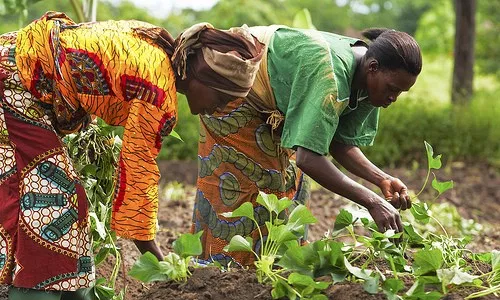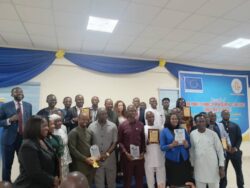By Wisdom JONNY-NUEKPE
Ghana’s quest to attain food sovereignty status is possible with an inclusion of biotechnology in domestic food production as well as properly demarcated land banks, research scientist at the Ghana Atomic Energy Commission, Dr. Daniel Osei-Ofosu, has said.
Dr. Osei-Ofosu – who is also a researcher at the Biotechnology and Nuclear Agriculture Research Institute – argued on the ever-increasing import bill and explained that genetically modified food is the panacea to curbing low yields and food insecurity.
“Importation of basic food including onions, tomatoes among others demand that we begin to strongly consider innovative ideas such as GMOs to help us become food sufficient. It is very necessary,” he told the B&FT at a biotechnology forum in Accra.
Ghana’s tomato and onion imports from neighboring Burkina Faso and Niger are in excess of US$430million each year.
The price for a box of tomatoes on the local market has skyrocketed to GH¢7,500 in June this year from GH¢4,200 for the same volume in January this year.
Also, the Ministry of Finance has estimated that the food import bill in the last decade has reached a staggering US$10billion.
This phenomenon, according to Dr. Osei-Ofosu, calls for serious conversation and the need to take advantage of biotechnology to assist farmers in producing basic food commodities.
He said GMOs are only one tool in the toolbox of a plant breeder which provide solutions for disease control, adaption among others, and not harmful as perceived.
The concept of land banks, which brings together government and private lands for agriculture use, has been a challenge in Ghana.
However, Dr. Osei-Ofosu explained that food security and food sovereignty cannot be achieved without properly managing the country’s agriculture space through land banks.
“Once these land banks are designated and remain unencroached, the call for innovation and biotechnology in food production will also increase,” he said.
The biotechnology forum
The forum was held with the objective of discussing the status of GM cowpea developed by the Council for Scientific and Industrial Research and its commercialisation process.
Dr. Richard Ampadu Ameyaw, National Coordinator of the Open Forum on Agricultural Biotechnology in Africa (OFAB) and a research scientist at the CSIR, disclosed that all work on the GM cowpea has been concluded; however, it is undergoing an approval process.
“This means all due diligence, including trial and field work, has been done. We are engaging the National Seed Council and other critical stakeholders for a final decision of approval and commercialisation,” he said.










